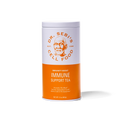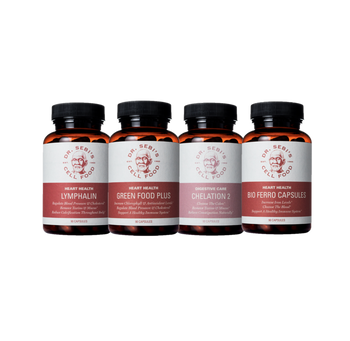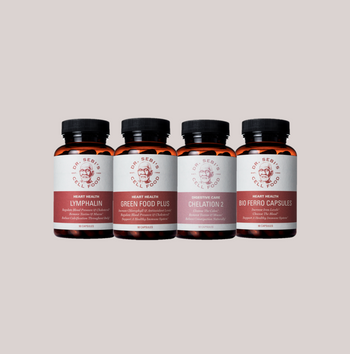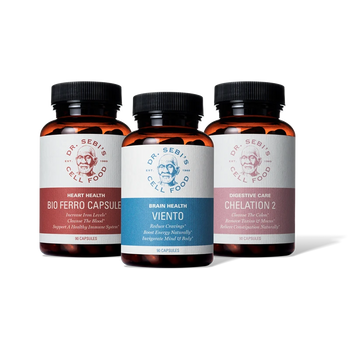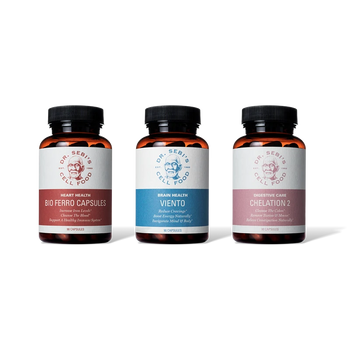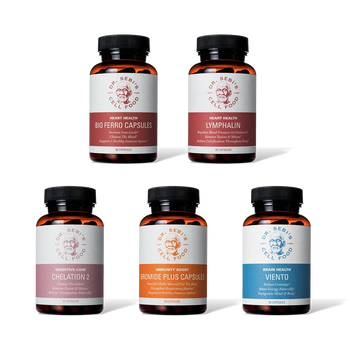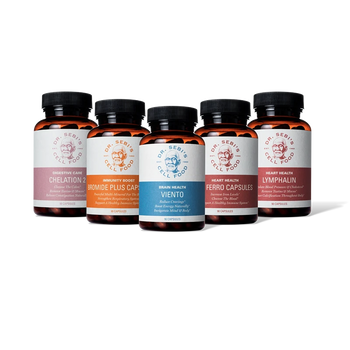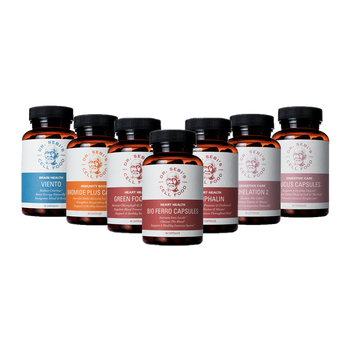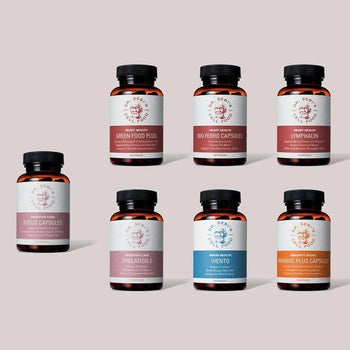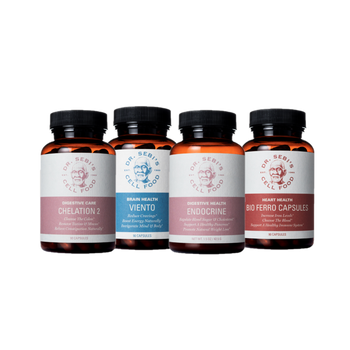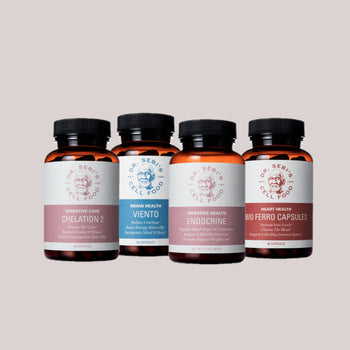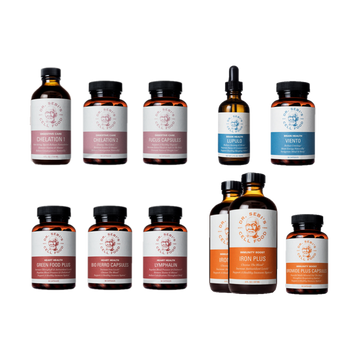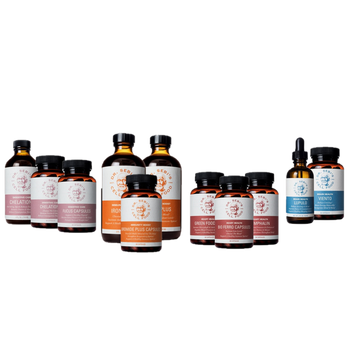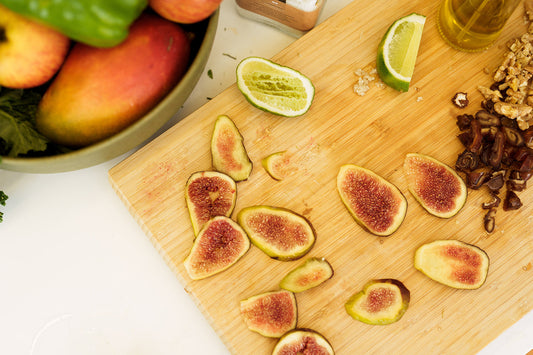When people think of health, they often focus on the heart, the brain, or digestion. But another system quietly works in the background every moment of the day: the lymphatic system. It is the body’s natural drainage network, carrying away waste, supporting immunity, and helping fluids stay balanced.
Dr. Sebi emphasized the importance of keeping the lymphatic system clean and functional. For him, the buildup of mucus and toxins in the lymph was one of the root causes of disease. Alkaline herbs, when used consistently, help cleanse and rejuvenate this vital system, restoring balance and energy to the body.
This article explores how the lymphatic system works, why it becomes congested, and how alkaline herbs listed in the Nutritional Guide can naturally detoxify and strengthen it.
The Lymphatic System at a Glance
The lymphatic system is a network of vessels, nodes, and organs that runs throughout the body. It includes:
- Lymph fluid: a clear liquid that transports immune cells and waste.
- Lymph nodes: small filters that trap toxins, bacteria, and abnormal cells.
- Organs: the spleen, tonsils, and thymus, which support immune function.
Its main jobs are:
1. Removing cellular waste.
2. Returning fluids to the bloodstream.
3. Defending against infection.
When the lymphatic system becomes stagnant, waste builds up. Symptoms of congestion may include swelling in the face, hands, or feet, chronic fatigue, brain fog, skin problems, or frequent infections.
Why Detoxing the Lymphatic System Matters
Modern lifestyles overload the lymphatic system with:
- Processed and hybrid foods.
- Environmental toxins.
- Stress and lack of sleep.
- Inactivity, which reduces lymph flow (since it doesn’t have a pump like the heart).
Cleansing the lymph with alkaline herbs reduces mucus, improves circulation, and restores immunity.

Alkaline Herbs for Lymphatic Detox (from Nutritional Guide)
1. Burdock Root
Known as one of the most powerful blood purifiers, burdock root supports both the liver and lymphatic system. It helps eliminate toxins, reduce skin eruptions, and boost circulation.
2. Elderberry
Rich in antioxidants and flavonoids, elderberry strengthens immunity and helps clear excess mucus. It is particularly useful during colds and flu.
3. Ginger
A warming herb that stimulates circulation, ginger helps move stagnant lymph and reduces inflammation.
4. Chamomile
Gentle but effective, chamomile reduces inflammation and calms the nervous system, allowing the lymphatic system to function more effectively.
5. Tila (Linden Flower)
This soothing herb promotes relaxation, reduces tension, and gently supports detoxification through the lymphatic system.
How These Herbs Work
Circulation Boost: Ginger and burdock stimulate blood flow, which indirectly moves lymph.
Mucus Reduction: Elderberry and chamomile help break down and clear mucus.
Calming Stress: Tila and chamomile reduce cortisol, which otherwise slows lymphatic drainage.
Blood Purification: Burdock cleanses the blood, easing the burden on the lymph.
Together, they restore balance to the system.
Practical Detox Rituals
1. Herbal Teas
- Morning: Start with burdock and ginger tea to energize circulation.
- Afternoon: Drink elderberry tea to boost immunity.
- Evening: End with chamomile or tila to relax and allow overnight detoxification.
2. Infused Water
Add slices of ginger or key lime to spring water throughout the day for gentle stimulation.
3. Herbal Baths
Add chamomile tea bags or ginger infusion to warm bathwater. The skin absorbs beneficial compounds while heat stimulates lymph flow.
4. Herbal Infusions
Long-steeped teas (6–8 hours) of burdock or elderberry provide concentrated minerals and flavonoids.
Supporting Practices Beyond Herbs
Herbs are powerful, but they work best with supportive habits:
Movement: Walking, stretching, or dancing keeps lymph fluid moving.
Hydration: Drinking mineral-rich spring water prevents lymph thickening.
Rest: Deep sleep supports nighttime detoxification.
Dry Brushing: Lightly brushing the skin toward the heart stimulates lymph flow.
FAQs
Q: How long does it take to detox the lymphatic system?
A: Some people feel results in days (clearer skin, lighter energy), but deeper cleansing may take weeks or months of consistent herb use. An herbal detox may benefit, and speed the process.
Q: Can children use lymphatic herbs?
A: Yes, but in smaller doses. Chamomile and elderberry are especially gentle and effective for kids.
Q: Do I need to fast while detoxing?
A: Fasting is not required, though reducing processed foods and focusing on alkaline fruits and greens enhances results.
Q: Are these herbs safe for daily use?
A: Yes, when taken in moderate amounts. They are nourishing herbs rather than harsh cleansers.
Dr. Sebi’s Perspective
Dr. Sebi taught that the accumulation of mucus in the body is the foundation of disease. The lymphatic system, being responsible for clearing waste, is one of the most important areas to keep clean.
“Mucus is the cause of every disease. Eliminate the mucus and you eliminate the disease.”- Dr. Sebi
For him, herbs like burdock, elderberry, and ginger were not simply remedies but tools for restoring the body to its natural state of balance. Detoxing the lymph was a way of removing the obstacles that prevent health from flowing freely.
Conclusion
The lymphatic system is often overlooked, yet it is vital for detoxification and immunity. When stagnant, it creates the conditions for disease. When cleansed, it restores vitality and resilience.
By integrating alkaline herbs such as burdock, elderberry, chamomile, ginger, and tila, we can gently but powerfully support the body’s natural drainage system. Combined with hydration, movement, and rest, these herbs create a foundation for lasting health.
Cleansing the lymph is not just about removing waste—it’s about allowing the body to thrive as nature intended.

